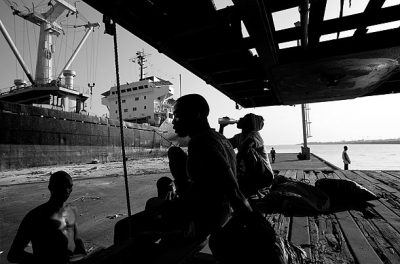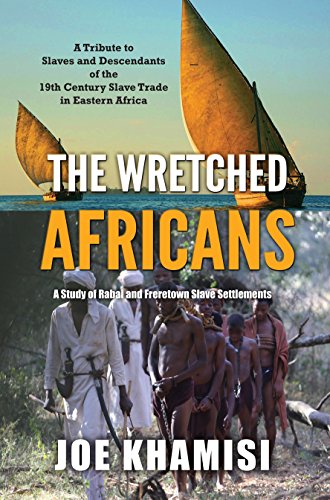Marco Vernaschi
By
Joe Khamisi
Over the past decade Africa has moved closer to the top tier of countries most involved in the international smuggling of illicit drugs.
Global drug syndicates driven by criminal gangs, crafty businessmen and greedy politicians, and aided and abetted by crooked policemen and border customs officials, have successfully and effectively stretched their nefarious activities into the continent to take advantage of unpatrolled borders, weak justice systems and official corruption.
Africa is now being described by US officials as the “new frontier in narcotics smuggling” and by UN officials as “the market of the future” for illegal drugs.
An estimated 200 million people worldwide are said to be consumers of illegal drugs and Africa represents a good chunk of that figure. Estimates say up to 40 metric tons of drugs pass through Africa every year.
Kenya, Tanzania, South Africa, Djibouti, Eritrea, Mozambique, and nations in West Africa, are some of the countries used as passage-ways for cocaine and heroin from Afghanistan, Pakistan, Thailand, India, Russia and several other countries. From Africa, a large amount of the narcotics is trans-shipped to Europe and America while some of it remains, turning young African men and women into zombies.
In Kenya several big boats – among them an Australian ship which was caught in 2014 with a ton of cocaine worth 240 million US dollars – have been seized at the port of Mombasa. In some cases, the government has ordered their destruction at sea. For some unknown reasons, the crew is always let free to go.
Containers filled with drugs and disguised as sugar or relief food have also been nabbed at Mombasa, many of them linked to prominent businessmen and politicians. In addition, huge amounts of the dangerous substances find their way through porous borders across many African countries.
The US Drug Enforcement Administration (DEA), the UK National Crime Agency (NCA), and the UN Office of Drug and Crime (UNODC), which have been working closely with the Kenya government to stem the infiltration of narcotics have identified a number of well-known Kenyans they say are directly linked to the drug trade. At least two are county governors and others are members of parliament. Despite such revelations the government has taken no action against the individuals who are left to flaunt their illegal wealth in politics and in real estate; and own expensive vehicles, motor-boats and choppers.
As I write, two high-profile cases are in court involving, among others, family members of a one-time international drug baron, Ibrahim Akasha, who was murdered in 2000 as he strolled along a street in Amsterdam. At the time of his murder, Akasha was said to be pursuing money from a drug king for the supply of a large consignment of heroine. Five years later, one of his sons was silenced at close range in a gang-like assassination in Mombasa.
Another case currently in court in Kenya involves the grandson of a Scottish aristocrat who is accused of smuggling 100 kilograms of cocaine in containers that arrived from Brazil.
In Tanzania, a notorious drug king operating under a cartel known as the Hassan Drug Trafficking Organization was caught earlier this year and in his possession were five different passports issued in Zanzibar under different names. The individual was known to be travelling around the world dealing in narcotics and using some of his proceeds to bribe senior government officials to look the other way.
There is another related problem: Thousands of Africans caught carrying illegal drugs for their masters are serving long prison sentences abroad. According to one report, South Africa alone has more than 1,500 of its citizens in jails overseas on trafficking offences. Some of them have been executed in countries such as China and Indonesia which have some of the toughest anti-drug legislations in the world.
The drug smuggling menace is a huge challenge for Africa. Leaders must do much more than just give lip service to the fight against narcotics. They must strengthen their borders, boot out corrupt officials, and arrest the big boys – whether local or foreign – and not concentrate only on the small fish.
Joe Khamisi
Joe Khamisi is a former journalist, diplomat and Member of Parliament. He is also the Author of ‘Politics of Betrayal:Diary of a Kenyan Legislator‘, a political memoir about the situation in Kenya between 2001, when the ruling party of President Daniel Arap Moi, the Kenya African National Union (KANU), merged with Raila Odinga’s National Development Party.
The book also narrates cases of corruption in Parliament and in the Media and records Senator Obama’s visit to Kenya in 2006. As a friend of Barack Obama Senior, the author also remembers the times and tragedies of the American-educated economist.
Joe Khamisi’s second book, a biography, ‘Dash Before Dusk’ is also now on sale.
Joe’s latest book is ‘The Wretched Africans: A Study of Rabai and Freretown Slave Settlements‘ which has recently been published and is now available to purchase.






No Comments Yet!
You can be first to comment this post!